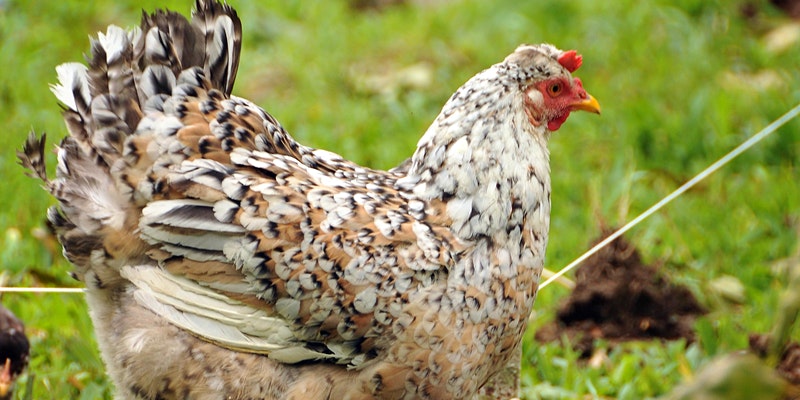Avian Influenza Update as of 9/28/22
go.ncsu.edu/readext?888893
en Español / em Português
El inglés es el idioma de control de esta página. En la medida en que haya algún conflicto entre la traducción al inglés y la traducción, el inglés prevalece.
Al hacer clic en el enlace de traducción se activa un servicio de traducción gratuito para convertir la página al español. Al igual que con cualquier traducción por Internet, la conversión no es sensible al contexto y puede que no traduzca el texto en su significado original. NC State Extension no garantiza la exactitud del texto traducido. Por favor, tenga en cuenta que algunas aplicaciones y/o servicios pueden no funcionar como se espera cuando se traducen.
Português
Inglês é o idioma de controle desta página. Na medida que haja algum conflito entre o texto original em Inglês e a tradução, o Inglês prevalece.
Ao clicar no link de tradução, um serviço gratuito de tradução será ativado para converter a página para o Português. Como em qualquer tradução pela internet, a conversão não é sensivel ao contexto e pode não ocorrer a tradução para o significado orginal. O serviço de Extensão da Carolina do Norte (NC State Extension) não garante a exatidão do texto traduzido. Por favor, observe que algumas funções ou serviços podem não funcionar como esperado após a tradução.
English
English is the controlling language of this page. To the extent there is any conflict between the English text and the translation, English controls.
Clicking on the translation link activates a free translation service to convert the page to Spanish. As with any Internet translation, the conversion is not context-sensitive and may not translate the text to its original meaning. NC State Extension does not guarantee the accuracy of the translated text. Please note that some applications and/or services may not function as expected when translated.
Collapse ▲Attention backyard flock owners. As we welcome fall and move into winter I would like to give a few reminders and updates before wild birds begin to migrate from their summer homes up north back to the south, taking with them not only themselves but potentially HPAI. For a quick recap of what HPAI is- High Path Avian Influenza, which is a respiratory illness in both wild and domestic birds that is highly contagious and generally causes death in poultry, mainly chickens.
When wild birds begin to migrate HPAI could be transmitted to your backyard flocks. There are several symptoms to keep an eye out for over the next few months: Reduced Energy/Appetite, Swelling of the head/eyelids/comb/wattle & shanks, Purple discoloration of comb/wattle and legs, Sneezing, Runny Nose, Difficulty breathing, Stiffness, Diarrhea, Circling, and Tremors.
What are some things you can do to keep your flocks safe?
Keep a check on your flocks and what is normal for them. Make note of any signs of illness they may be displaying. If they exhibit any of the above symptoms, reach out to the extension office, the NCDA&CS, or the USDA to report your birds if there is more than one bird affected. Ensure some safety precautions for yourself and your flock like the following: Wash your hands before and after handling the poultry, keep neighboring flocks away from yours, keep neighbors with other poultry away/ to a minimum with your flock. Be sure to provide fresh clean water and food away from where wild birds will have access to it.
There has not been a reporting of the Avian Influenza yet in North Carolina this summer, but there has been a report in Western Tennessee as of September 15th. Please keep a check on your flocks and monitor their health as we move into this next migration season. If you have any questions or are wanting any more information please contact Bailee Perkins at 336-694-4158 ext 5. Or email at bailee_perkins@ncsu.edu





